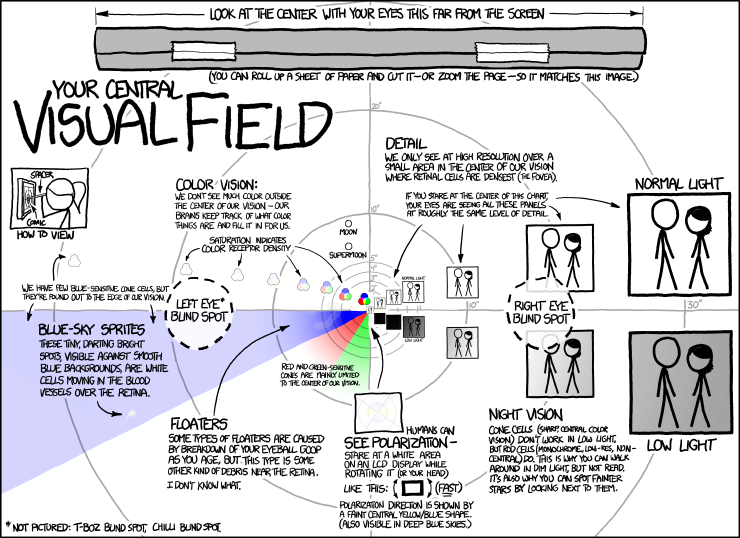
informatik



Karol Myszkowski
Piotr Didyk

(c) xkcd.com
As computer graphics is producing images and videos that are ultimately perceived by a human, it's mandatory to account for how the human visual system (HVS) is processing this information. The HVS is complex, exhibiting many non-linearities as well as feedback and is only partially understood. While this poses a challenge, it can also be seen as an opportunity which can be exploited in image compression, watermarking, denoising, enhancement, upsampling, etc. Computational models which can predict the human response to the distortion of visual content are important when this opportunity is taken. To this end, our course covers the basic theory of perception research, including
and the practical applications in computer graphics, including
The target audience are students in computer science or related fields. This course covers topics from psychology and physiology that are relevant to computer graphics, and novel perception research and applications in computer graphics and vision. The objective is to transfer knowledge, experience and competencies that are required for doing research in perceptual computer graphics, and that are useful in many related fields, such as experimental psychology, or usability studies in human-computer interaction.
| Prerequisites: |
computer graphics and image processing, and the related math. |
|---|---|
| Language: | English. |
| Evaluation: |
Final exam (written)
Monday, 19. 02. 2017. Time: 10:15-11:45. Place: lecture hall 001 in E1 3 (CS).
Re-exam Wednesday, 21. 03. 2017. Time: 12:15-13:45. Place: lecture hall 001 in E1 3 (CS). |
| Lecture time: | Wednesday, 12:00-14:00 (CHANGED!) |
|---|---|
| First lecture: | Wednesday, 18.10.2017 |
| Room: | Building E1 4 (Max-Planck-Institut für Informatik), Room 019 |
| HISPOS: | Course No. 107016 |
Schedule:
Course resources: Slides will be available after each lecture. Email Okan Tarhan Tursun for the password. No password required if you're on the campus network.
The following list contains the most relevant books for this lecture:
Further literature will be announced during the course.